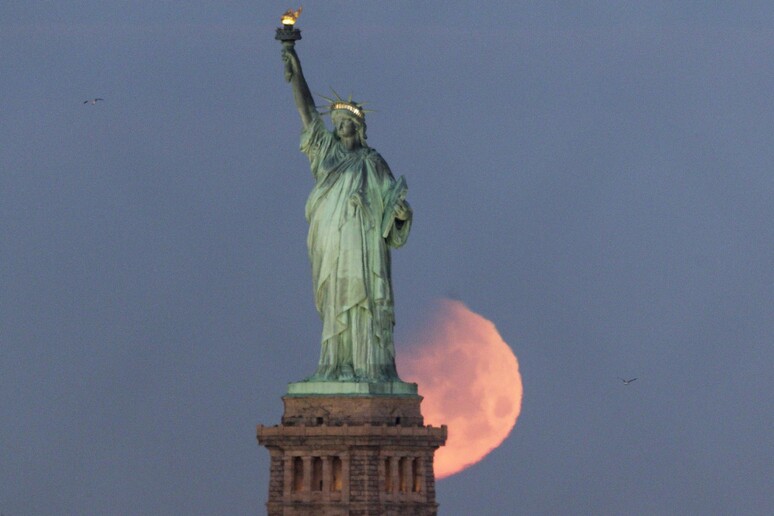The U.S. tourism sector, traditionally one of the most dynamic and profitable, is facing new challenges. According to recent reports by the research firm Tourism Economics and sources like Forbes and The New York Times, the growth forecast for travel to America, initially estimated at 9%, has now been revised downward, with a 5.5% decrease expected for 2025. The causes of this decline are many, ranging from trade wars to increasingly divisive domestic policies, which are negatively impacting the country’s image globally.
Iconic cities such as New York, San Francisco, and Chicago, as well as famous national parks like Yellowstone and Yosemite, have been major tourist attractions for decades. However, the increasingly tense political atmosphere and the new immigration laws introduced by President Donald Trump are changing the face of the USA.
Tourism Economics’ research highlights how a further escalation of trade wars could exacerbate the situation, with a potential annual reduction in tourism spending of 18 billion dollars by 2025. An example of this trend is the decline in travelers from Canada, which has traditionally represented one of the main international tourist flows into the U.S.
The tariff policies implemented by the Trump administration have decreased the inclination of Canadians to visit American cities. Air Canada announced a reduction in flights to some of the most popular destinations, such as Las Vegas, due to lower demand. According to data, bookings have plummeted by more than 70% compared to last year.
A survey conducted by Leger revealed that 36% of citizens from the “Maple Leaf Country” have canceled their travel plans to its southern neighbor due to several factors, including political uncertainty and discriminatory policies, particularly towards migrants and minorities. Many travelers report feeling less welcome in the U.S..
The growing distrust in Europe is also a worrying sign. After the re-election of the GOP leader, attitudes towards the U.S. have changed drastically, with a majority of people in countries like the United Kingdom, Germany, and Sweden now holding negative opinions towards the nation.
This is also compounded by the handling of the borders, which is becoming a controversial issue. Testimonies from tourists who have been detained in unacceptable conditions for days are contributing to the creation of a more negative reputation. The new customs policies, although justified by security concerns, are fueling the perception that the U.S. is becoming a difficult and risky destination for visitors.
Some alternative routes seem to be benefiting from this situation, such as the Bermuda archipelago in the Atlantic Ocean, which has seen a significant increase in bookings from Canadians. Europe is also experiencing a similar rise in demand, with a 32% increase in summer bookings. Not only tourists but businesses are also redirecting their investments and business travel to other destinations, shifting attention away from American locations.
Sport tourism could also be heavily impacted. With the 2026 FIFA World Cup to be held in the U.S., Canada, and Mexico, visa restrictions and delays in controls are raising concerns. The International Olympic Committee has expressed fears about the 2028 Los Angeles Olympics, although U.S. authorities insist that the country will be open to international events.
The loss of trust from travelers risks having serious economic repercussions, with an impact that may be difficult to reverse in the long term.












